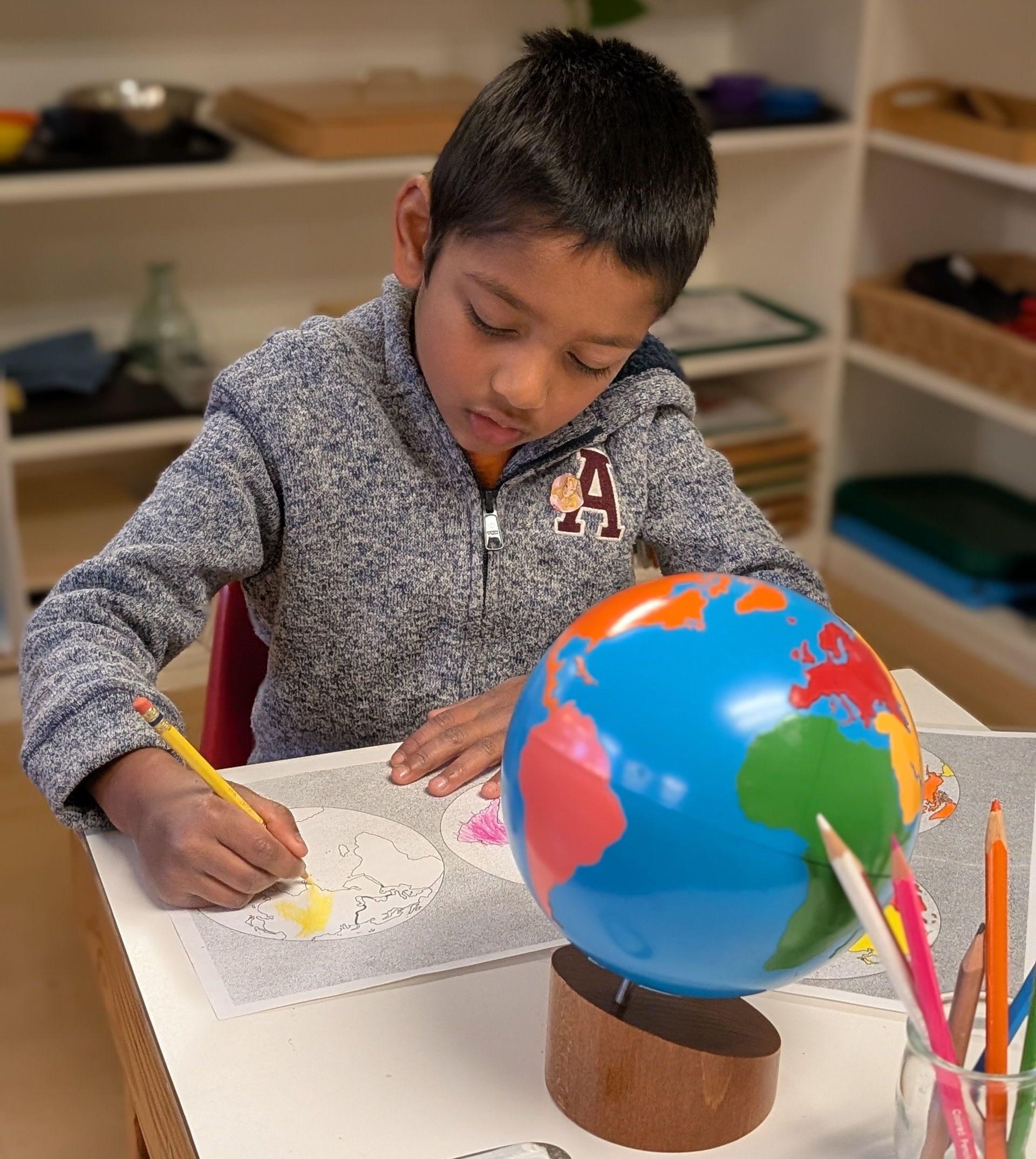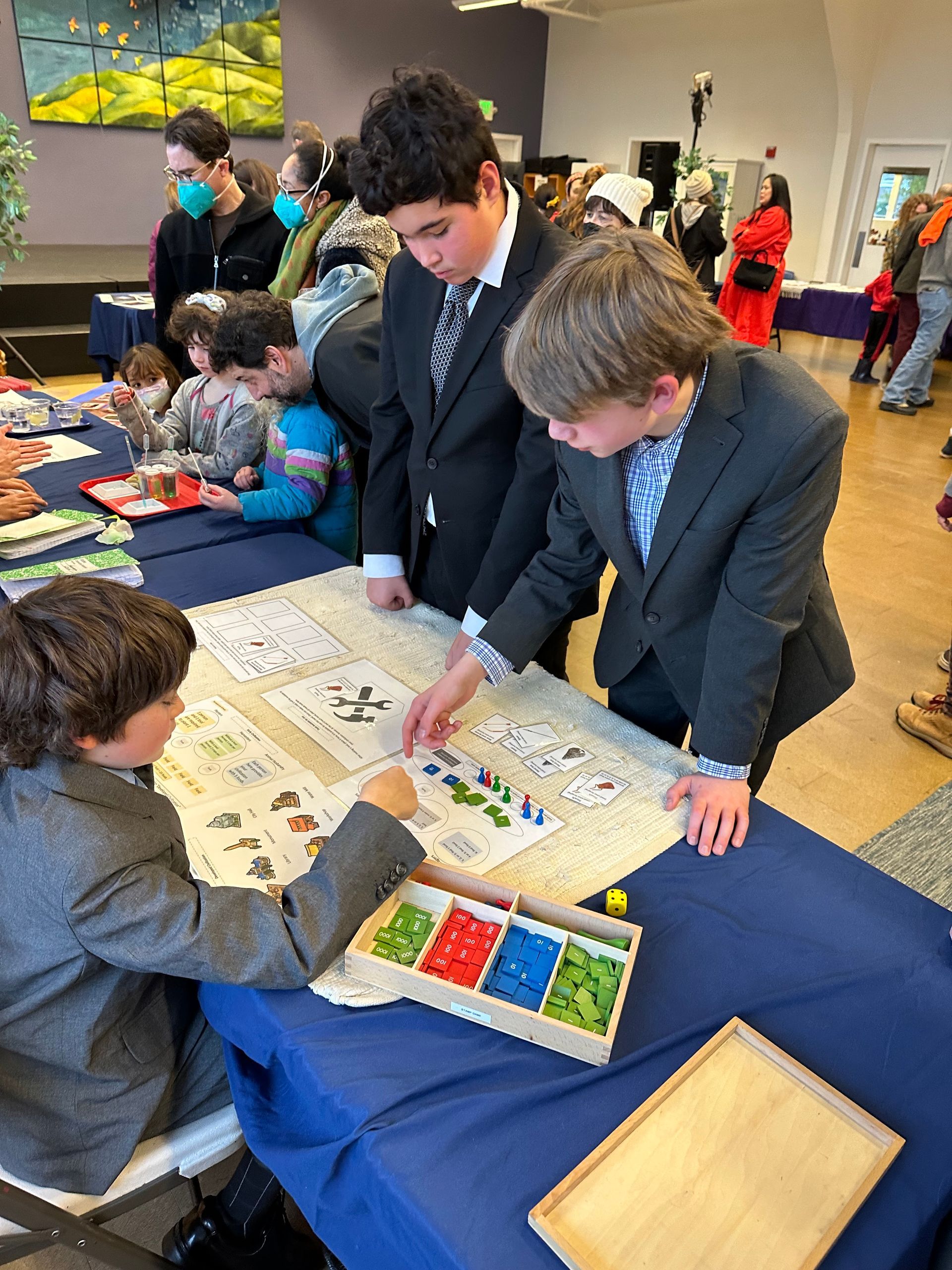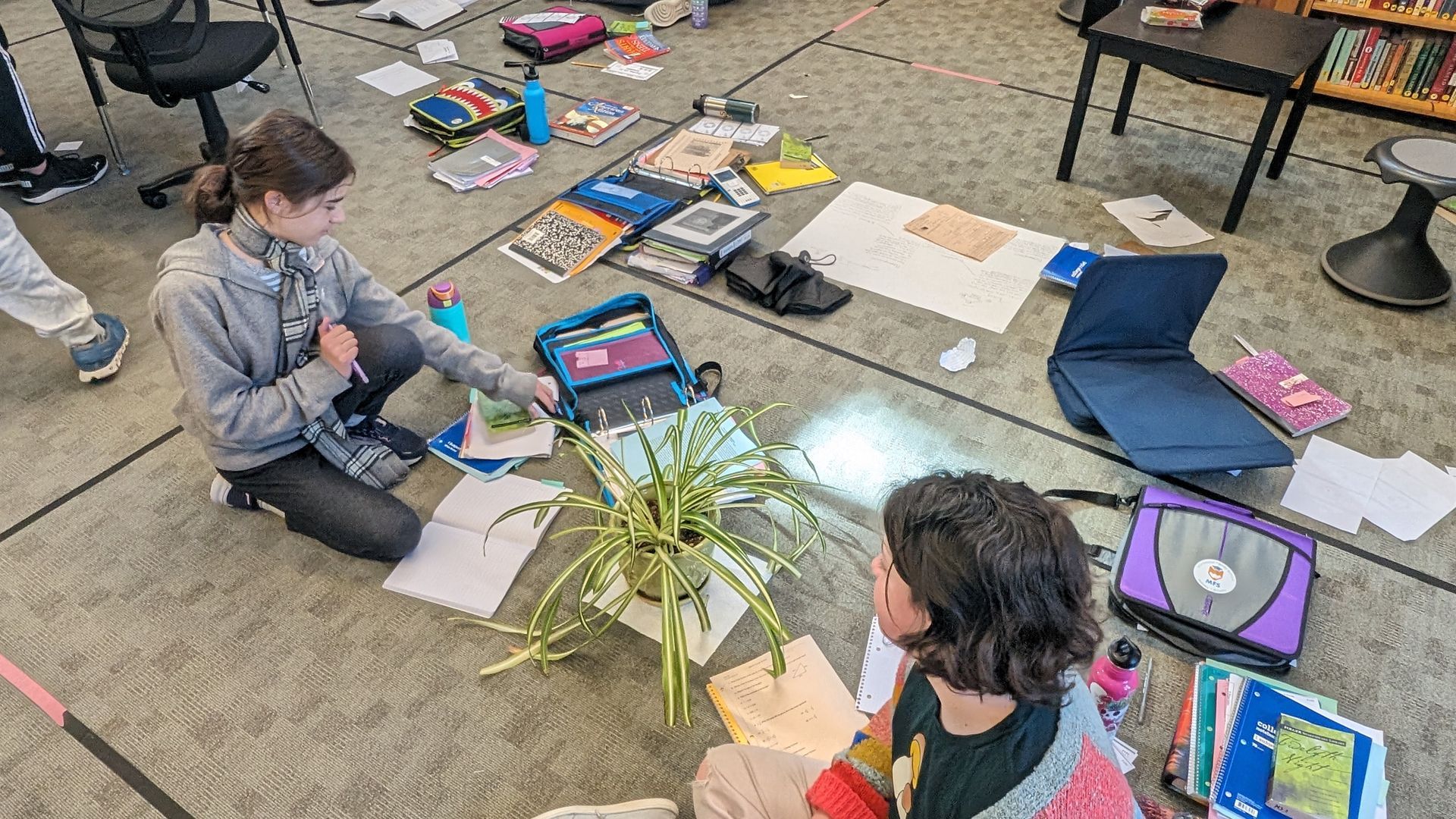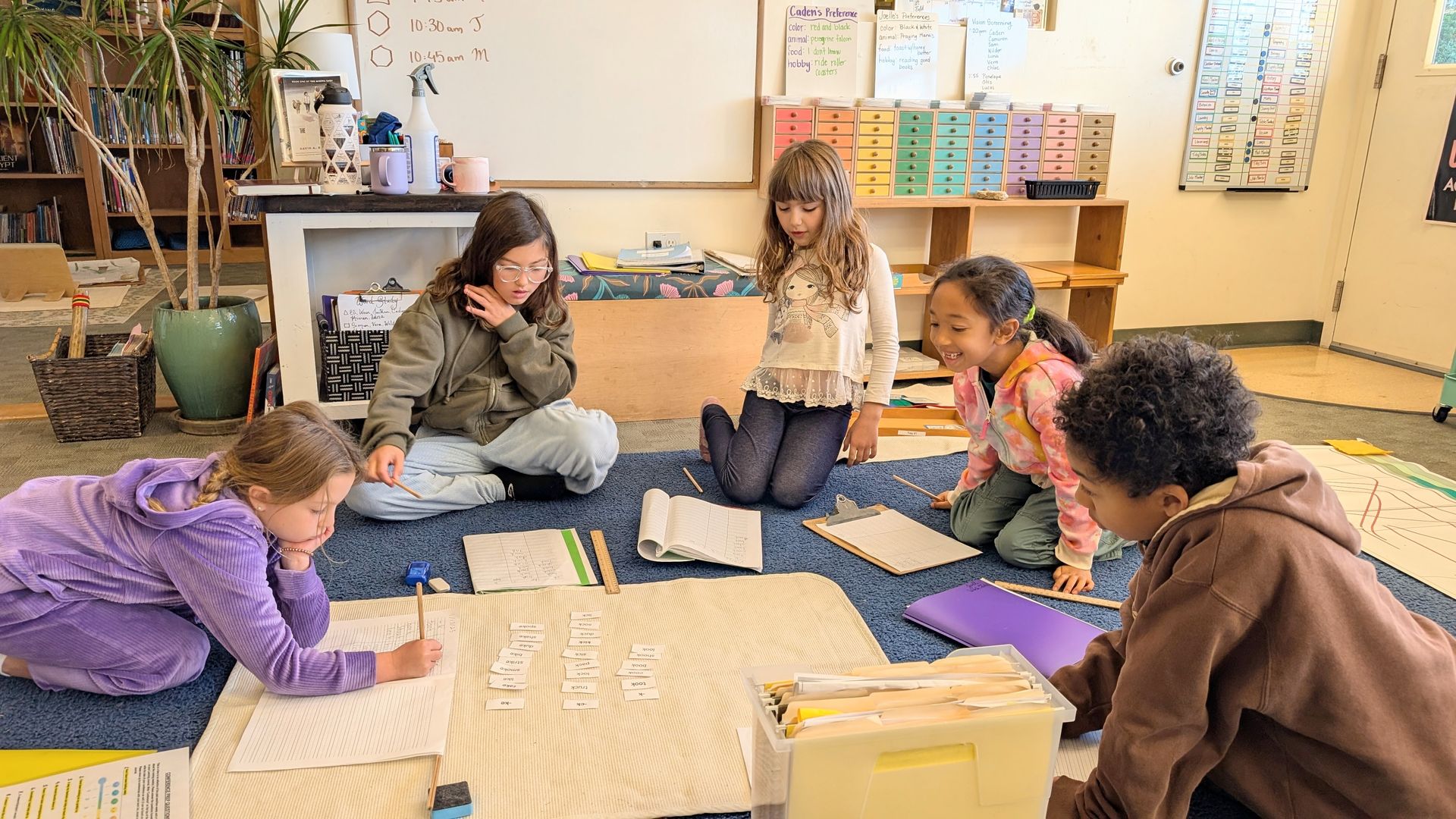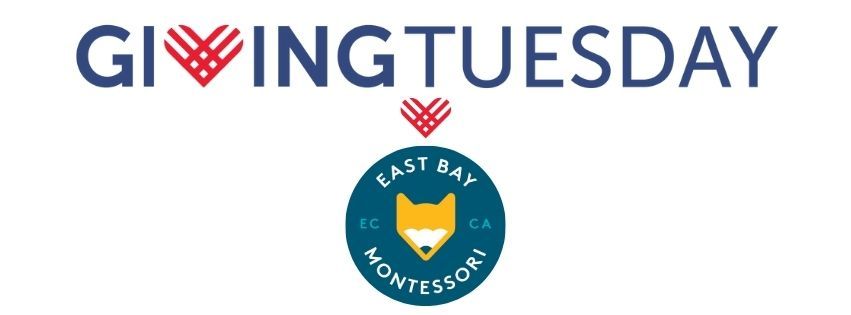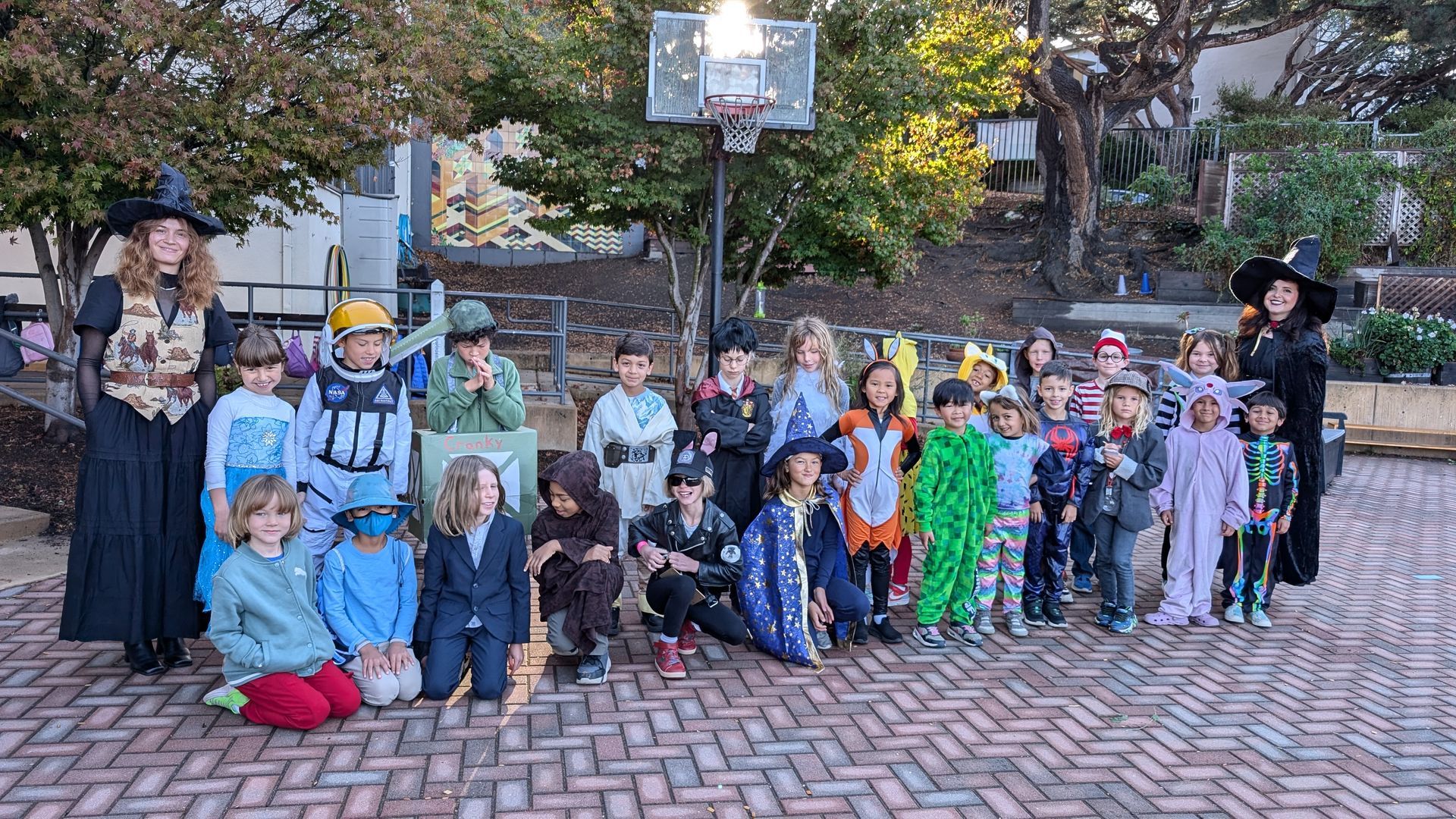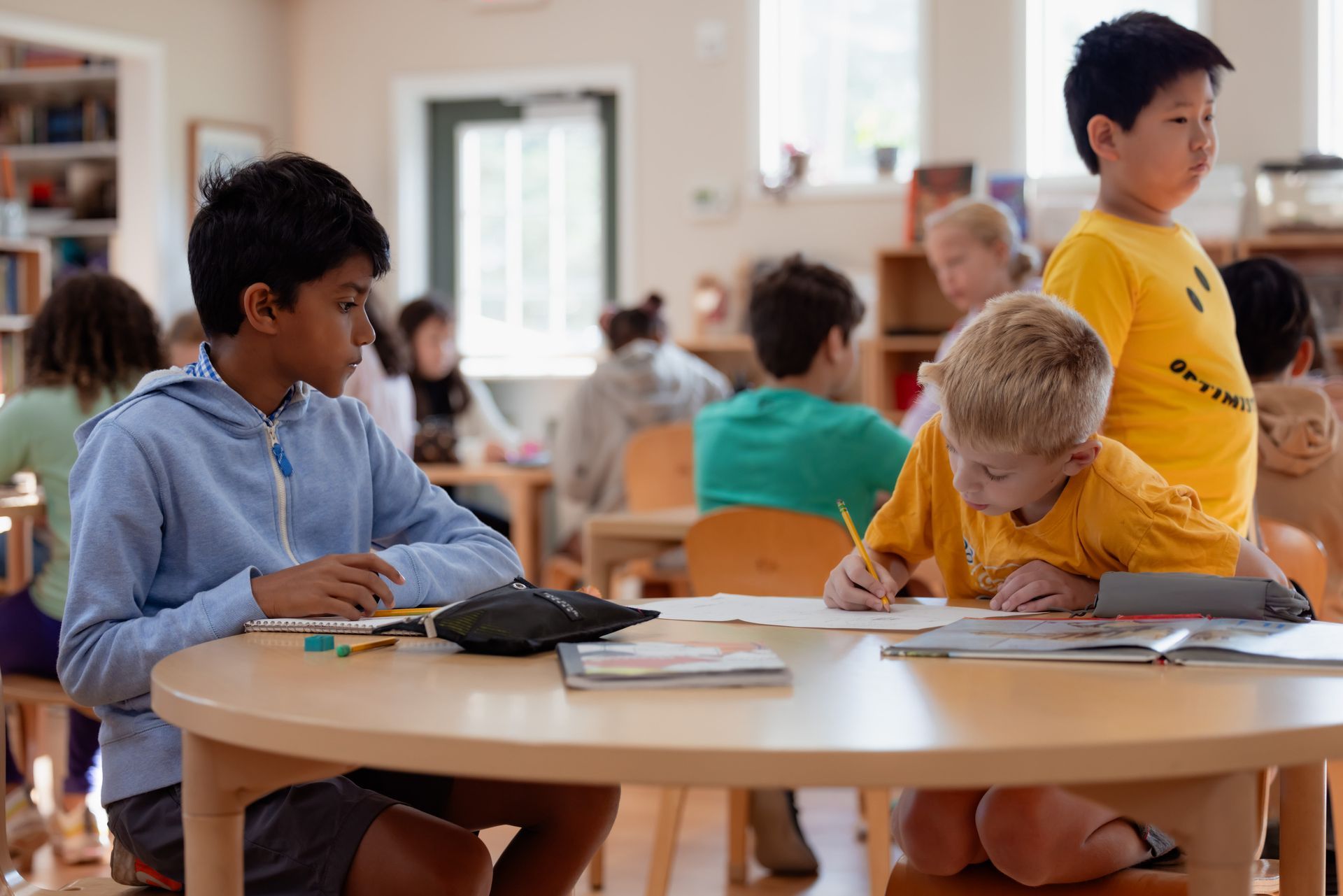What is Cosmic Education?
Montessori Cosmic Education nurtures curiosity, imagination, and a sense of purpose through integrated learning, storytelling, and exploration of the universe.
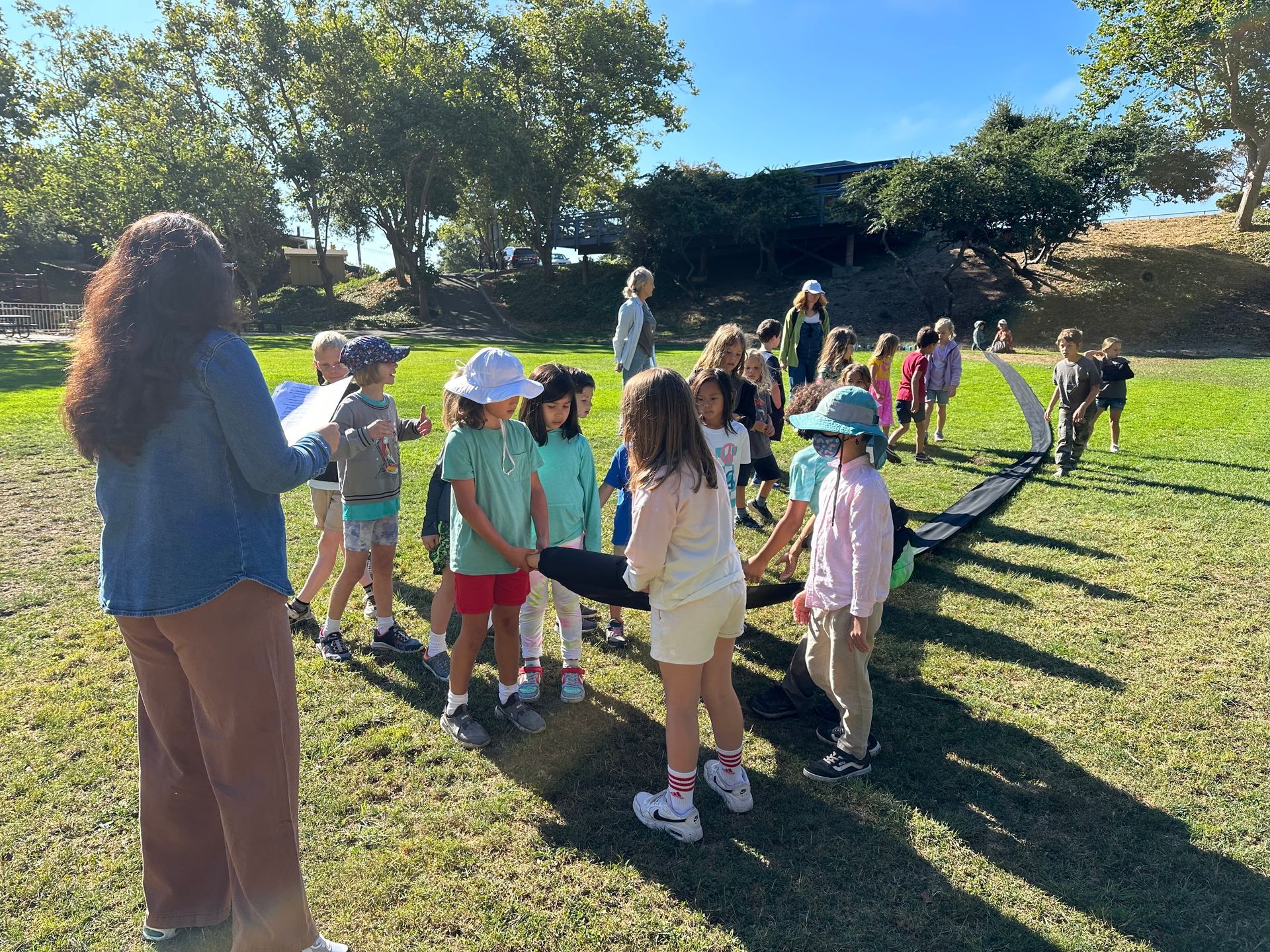
Elementary-aged children have an innate desire to learn about the universe, the world, places, people, and how they interact. They yearn to understand why and how. They are eager to understand not only the culture in which they live but also make sense of the magnitude of cultures (human and non-human) that make up the entire world and, indeed, the entire cosmos.
Dr. Maria Montessori developed Cosmic Education as a guiding framework for children in the second plane of development (ages 6 to 12). Comic Education is designed to nurture their reasoning minds and imagination while fostering a sense of interconnectedness and wonder.
The Philosophy of Cosmic Education
Dr. Montessori described Cosmic Education as an approach that offers children a vision of the universe and its order and a way to understand how all things are interrelated.
“If the idea of the universe be presented to the child in the right way, it will do more for him than just arouse his interest, for it will create in him admiration and wonder... his intelligence becomes whole and complete because of the vision of the whole that has been presented to him.”
– Dr. Maria Montessori
To Educate the Human Potential
Rather than teaching isolated subjects, Cosmic Education presents an integrated curriculum where history, science, geography, language, and math are interwoven into a grand narrative. This holistic approach helps children see themselves as part of both a larger human story and the natural world.
The Scope of Cosmic Education
Unlike traditional curricula focused on skills, facts, and assessments, Cosmic Education prioritizes deep exploration. Montessori educators recognize that they are guides who plant seeds of interest, knowing that these seeds may germinate later in life. Guides encourage children to pursue knowledge freely, follow their curiosity, and make connections across disciplines.
At its core, Cosmic Education is centered around key themes:
Natural Laws: The universe follows natural laws, from gravity to the water cycle, which children observe and study. Human societies also create laws to maintain order and cooperation.
Work & Contributions: Everything in nature and human civilization has a role to play. From the work of bees pollinating plants to the contributions of scientists and artists, children see how each element of the universe is purposeful.
Interdependencies & Relationships: All systems in the universe, from ecosystems to human economies, are interconnected. Montessori education highlights these relationships to foster understanding and responsibility.
Love, Appreciation, & Gratitude: Cosmic Education nurtures a sense of reverence for the universe, whether through scientific discovery or historical narratives.
The Great Stories: A Foundation for Learning
Cosmic Education is introduced through the Great Stories: a series of imaginative, inspiring tales we share with wonder and reference. These stories not only provide a tantalizing glimpse into the marvels of the universe, they also provide a framework for deeper study. In order to bring significant concepts to life, Montessori elementary guides appeal to students’ imagination through allegory, metaphor, beautiful language, charts, and dramatic demonstrations.
The Great Stories include:
The Creation of the Universe – An awe-inspiring story about the origins of the universe, the formation of galaxies, and the forces that shape our world.
The Coming of Life – A journey through the evolutionary changes of life on Earth that culminates in an introduction to the fascinating Timeline of Life.
The Story of Humans – Explores the unique intellectual and creative capacities of human beings, emphasizing imagination and innovation.
The Story of Communication in Signs/The Story of Our Alphabet Story – Traces the development of written language, from ancient symbols to modern alphabets.
The Story of Our Numerals – Highlights how mathematics is another kind of human language and introduces the power of math to bring order and exactness, including how math has allowed humans to meet their needs in different ways.
These stories captivate children’s imaginations, prompting further exploration of subjects like physics, chemistry, history, and biology. They provide a unifying theme that integrates all areas of study, reinforcing the idea that learning is not fragmented but part of a cohesive whole.
Outcomes of Cosmic Education
Dr. Montessori’s vision of education extends beyond academics; it is about shaping compassionate, knowledgeable, and socially responsible individuals. She believed that understanding our place in the cosmos fosters humility, gratitude, and a commitment to improving the world.
Through Cosmic Education, children develop:
● A sense of purpose, recognizing that their work and actions contribute to the greater whole.
● An organized and analytical mind, capable of seeing patterns and relationships in complex information.
● A deep appreciation for humanity and nature, encouraging them to become responsible stewards of the Earth.
● A lifelong love of learning, driven by curiosity rather than external rewards.
Nurturing wonder, critical thinking, and interconnected understanding lays the foundation for a lifetime of meaningful learning and engagement with the world. Ultimately, Montessori’s Cosmic Education is more than a curriculum—it is a philosophy that empowers children to view themselves as active participants in the ongoing story of the universe. The best way to learn about Cosmic Education is to come see it in action! Schedule a tour today!

